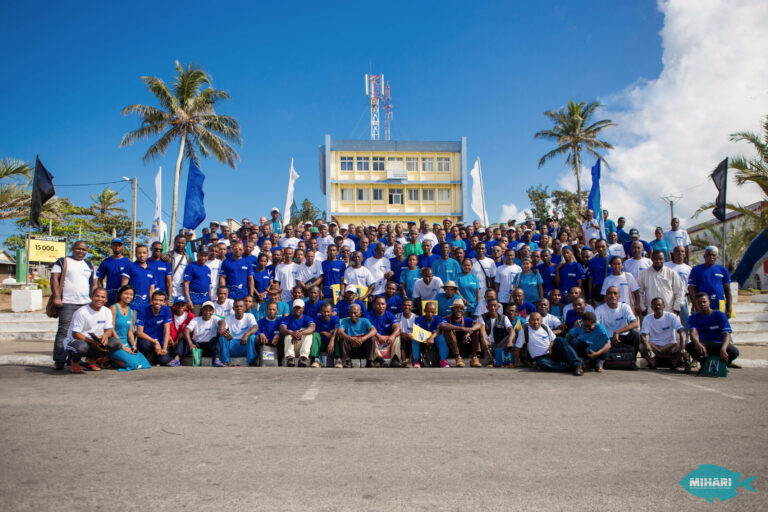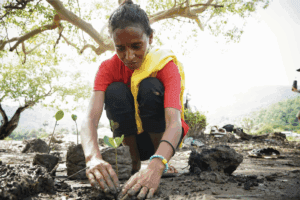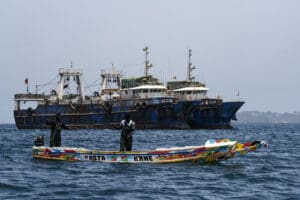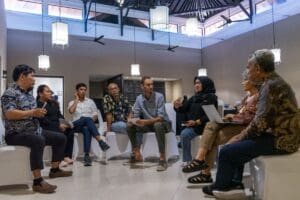 An unprecedented gathering of small-scale fishermen and women from around Madagascar brought together over 170 community representatives in late July in the coastal city of Fort Dauphin.
An unprecedented gathering of small-scale fishermen and women from around Madagascar brought together over 170 community representatives in late July in the coastal city of Fort Dauphin.
The five-day meeting was the fourth annual forum of Madagascar’s locally managed marine area (LMMA) network MIHARI, the result of months of preparation by the MIHARI secretariat and its partner organisations and communities.
Established in 2012 to exchange learning and experiences across Madagascar’s growing movement of communities developing local marine and fisheries management initiatives, MIHARI now represents over 150 sites, collectively covering over 14% of the island’s inshore seabed.
By establishing LMMAs, often with the support of partner organisations, these communities have taken control of the management of their local marine resources to combat declining fisheries, habitat degradation and destructive fishing practices. At the forum, they joined forces to address these issues at the policy level for the first time.
At least 500,000 people make their living from fishing in Madagascar, but the country’s legislation currently lacks a coherent framework to recognise the needs of small-scale traditional and artisanal fishers, many hundreds of thousands of whom depend on fishing for subsistence and income.
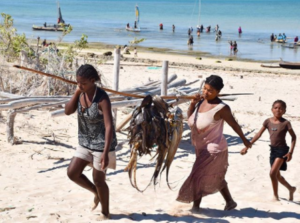
Over the past decade, a growing number of communities have declared LMMAs using customary local laws as a means of rebuilding local fisheries and protecting threatened marine biodiversity. This approach has proven to be a cost-effective, scalable and socially acceptable solution to the challenges facing Madagascar’s otherwise open access marine resources, and shows considerable promise as a means of safeguarding food security, tackling coastal poverty, and strengthening resilience to climate change.
Yet despite encouraging progress and promise, Madagascar’s coastal communities remain heavily disenfranchised. Geographic isolation, widespread poverty, and a lack of economic alternatives to fishing make these communities amongst the most vulnerable on earth to the impacts of climate change. Bold commitments by Madagascar’s authorities in recent years to establish a more robust legal framework to protect traditional fishing grounds have not yet been translated into actions, and coastal communities still have little voice or representation in national decision making.
Community leaders representing LMMAs from around the country presented a series of motions to Government representatives in attendance, the culmination of a series of regional and national consultations with communities and NGOs across the MIHARI network, which gathered together the voices and votes of more than 400 fishers.
The community motions appealed to the Government of Madagascar to grant them the exclusive right to fish inshore areas, as is often the case in other coastal states, and recommended in the FAO’s voluntary guidelines for small-scale fisheries. Madagascar’s small-scale fishing communities currently compete for dwindling catches with destructive industrial fishing vessels, many of which employ unsustainable practices such as bottom trawling, that undermine the fragile ecosystems on which traditional fishers depend.
The community representatives also called for stronger enforcement by Madagascar’s authorities to reduce the prevalence of destructive fishing gears, along with governmental support to reinforce the application of traditional local laws (dina) for the management of marine resources. Although considered an effective tool for local marine management within LMMAs, the process for establishing dina is complex, slow-moving, and beyond the capacity of many community organisations.
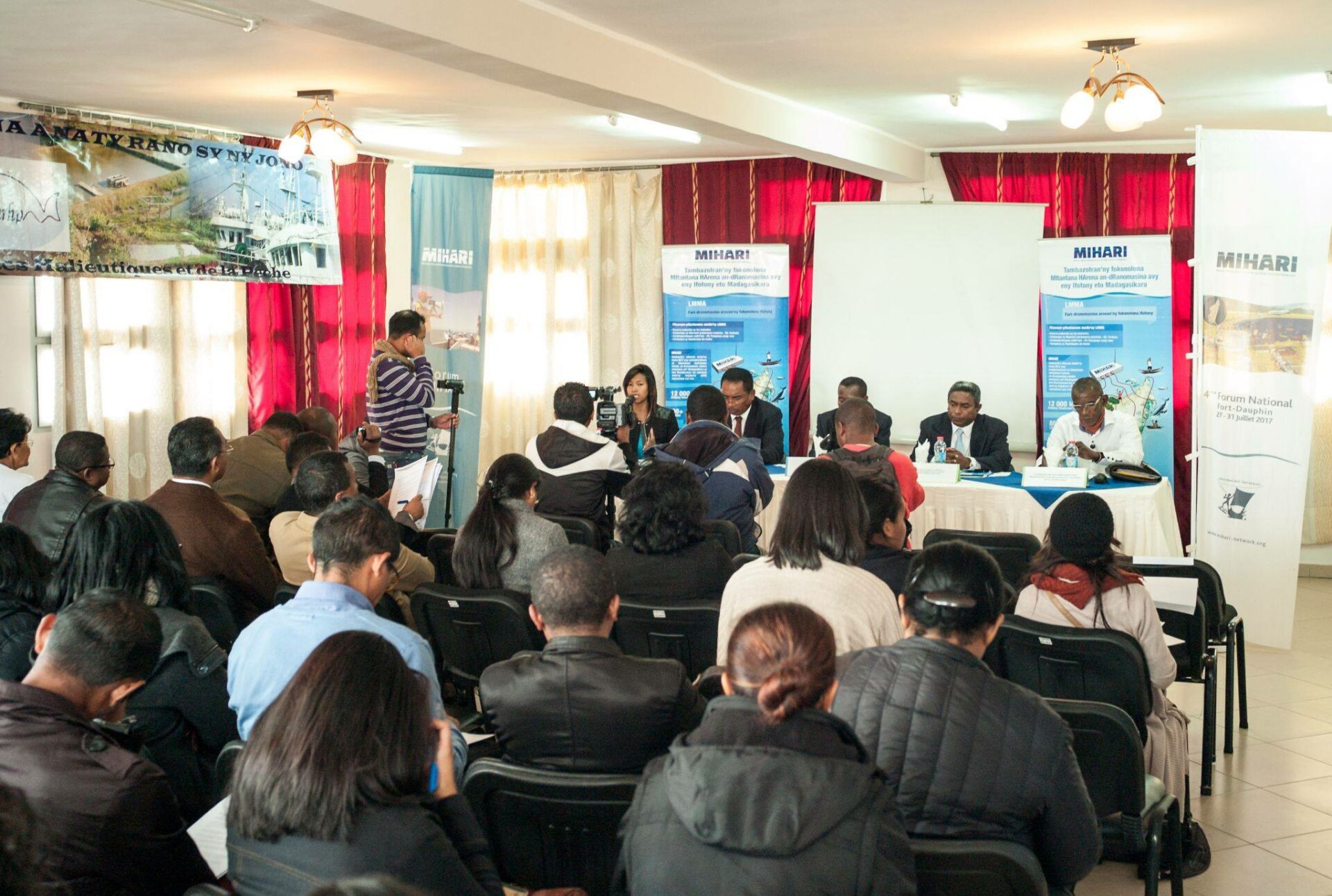
These motions represent a bold step by MIHARI’s member communities, and have since been communicated formally with Government stakeholders and the national media at a press conference held at the Ministry of Fisheries and Aquatic Resources in Antananarivo last week.
“For the first time in my lifetime, I was able to directly communicate with an authority like the Minister of marine resources and fisheries. It’s the first time that we, small-scale fishers in Madagascar, could unite our voices and speak up about our needs to different stakeholders” said Hermany Emoantra, President of MIHARI. “I think that if decisions are made, we could see some good impacts of the sustainable management of the marine resources.”
In the five years since the network’s establishment, MIHARI has grown quickly into one of Africa’s largest and most active civil society networks advocating for the fundamental human rights of small-scale fishing communities. That this has been achieved in one of the poorest countries on earth is a testament to the tireless perseverance and commitment of MIHARI’s members.
“Blue Ventures is proud to support the MIHARI network, and will follow the outcome of this groundbreaking forum closely”, said Jean Philippe Palasi, Blue Ventures Country Director in Antananarivo. “We will continue to work with Madagascar’s small scale fishing communities – and to collaborate with the authorities, the national fisheries surveillance centre, NGOs, donors, and all stakeholders – to find sustainable solutions to safeguard and improve their livelihoods.”
Find out more about the MIHARI Network, or download the factsheet in English or French.
Find out more about Locally Managed Marine Areas (LMMA)

